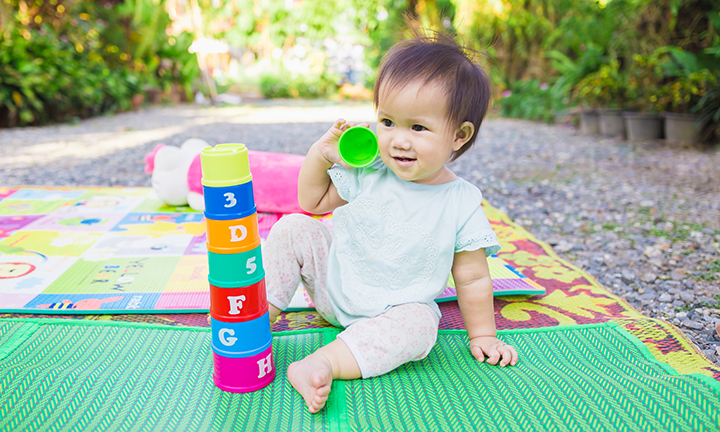 Source: bing.com
Source: bing.comAs a parent, you want what’s best for your baby. Part of that is making sure they develop the necessary fine motor skills. Fine motor skills involve the coordination of small muscles in the hands, fingers, and wrists. These skills are important because they are the foundation for many activities your child will engage in throughout their life, including writing, drawing, and buttoning clothes. In this article, we’ll cover everything you need to know about baby fine motor skills development.
Table of Contents
What are Baby Fine Motor Skills?
Baby fine motor skills are the abilities infants develop to control the small muscles in their hands and fingers. These skills involve precise movements of the hands and fingers that require coordination, strength, and dexterity. Some examples of baby fine motor skills include:
- Grasping objects
- Releasing objects
- Picking up small objects with the fingertips
- Using a spoon or fork
- Stacking blocks or other objects
- Buttoning and zipping clothes
- Drawing and coloring
- Writing
When Do Baby Fine Motor Skills Develop?
Baby fine motor skills development typically follows a predictable sequence, starting with gross motor skills and progressing to more refined skills. Here is a general timeline:
- 0-3 months: Infants are able to grasp objects, but their movements are largely involuntary and uncontrolled.
- 4-6 months: Infants start to develop intentional grasping, and they can hold objects for longer periods of time.
- 7-9 months: Infants can pick up small objects with their fingertips and transfer objects from one hand to the other.
- 10-12 months: Infants can stack blocks or other objects, use a spoon or fork, and point with one finger.
- 12-18 months: Infants can scribble with a crayon or pencil, turn pages in a book, and participate in simple self-care activities, such as brushing their hair.
- 18-24 months: Toddlers can use a fork and knife, dress themselves with help, and start to make more controlled marks with a crayon or pencil.
How Can You Promote Baby Fine Motor Skills Development?
There are many ways you can help promote your baby’s fine motor skills development. Here are some tips:
- Provide your baby with toys that encourage grasping and manipulation, such as blocks, balls, and stacking toys.
- Play games that involve reaching and grabbing, such as “where’s the toy?” or “I’m going to get your nose!”
- Provide your baby with opportunities to practice self-feeding with a spoon or fork.
- Encourage your baby to scribble with a crayon or pencil.
- Play games that involve turning pages in a book or sorting objects into containers.
- Provide your baby with ample opportunities for unstructured play, which allows them to explore their environment and experiment with different movements.
What if You Have Concerns About Your Baby’s Fine Motor Skills Development?
If you have concerns about your baby’s fine motor skills development, talk to your pediatrician or a specialist in child development. They can help you determine whether your baby’s development is on track or if there are areas that need extra attention. Early intervention is key to ensuring your baby reaches their full potential.
Conclusion
In summary, baby fine motor skills development is an important part of your child’s overall development. With the right support and guidance, you can help your baby develop the necessary skills they need to succeed in life. Remember to be patient and provide plenty of opportunities for your baby to practice their fine motor skills, and don’t hesitate to seek help if you have concerns about their development.
Frequently Asked Questions
Q: Can babies develop fine motor skills without toys?
Yes, babies can develop fine motor skills without toys. However, toys that encourage grasping, manipulation, and other fine motor movements can help support their development.
Q: Should I be worried if my baby’s fine motor skills development is slower than expected?
It’s important to remember that all babies develop at their own pace, and some may reach milestones earlier or later than others. However, if you have concerns about your baby’s fine motor skills development, talk to their pediatrician or a specialist in child development.
Q: What are some signs that my baby may be struggling with fine motor skills development?
Some signs that your baby may be struggling with fine motor skills development include difficulty grasping objects, trouble picking up small objects, and an inability to participate in self-care activities, such as brushing their hair. If you have concerns, talk to your pediatrician or a specialist in child development.
Q: Can fine motor skills development be improved with therapy?
Yes, fine motor skills development can be improved with therapy. If your baby has delays in fine motor skills development, a specialist in child development may recommend therapy to help support their development.
Q: What are some activities I can do with my baby to promote fine motor skills development?
Some activities you can do with your baby to promote fine motor skills development include providing them with toys that encourage grasping and manipulation, playing games that involve reaching and grabbing, encouraging self-feeding, and providing opportunities for unstructured play.
